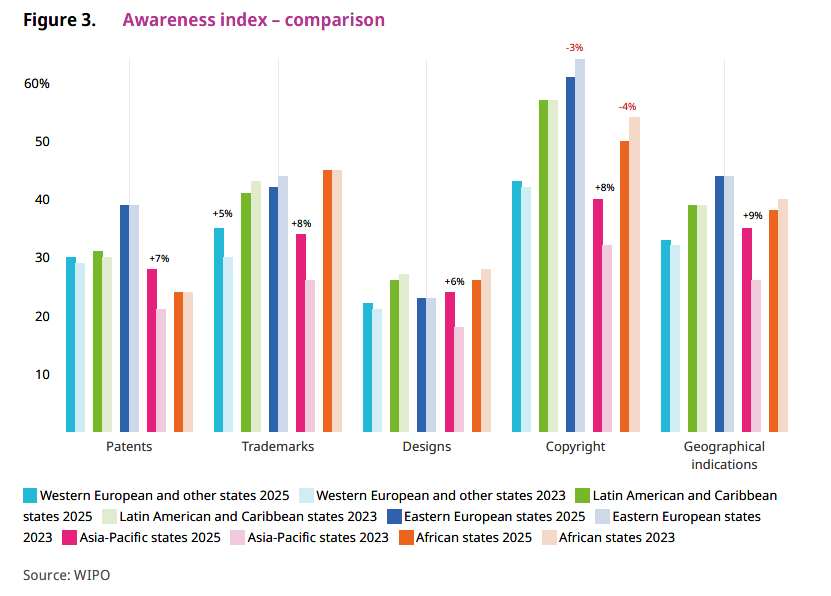The WIPO Pulse 2025 survey offers a clear message: intellectual property (IP) is gaining traction globally, but the journey toward universal understanding is not yet complete.
With responses from 35,500 individuals across 74 countries, this expanded study reveals a significant uptick in awareness of all five major IP rights—patents, trade marks, designs, copyright, and geographical indications—compared to 2023. The strongest growth relates to trade marks and copyright, underscoring the increasing relevance of brand identity and creative works in today’s economy.
Why does this matter? A well-informed public is more likely to respect IP, support legitimate businesses, and recognize the value of innovation, all essential for fostering creativity and sustaining economic growth. Yet, the data shows regional disparities: for example, Asia-Pacific shows increased IP awareness among youth and women, while in Eastern European states perceptions have declined slightly across all five IP rights. Western European and other states (including the US and Canada) hold a more positive outlook for trade marks and copyright, but increased skepticism towards design-protected products.

Beyond awareness, perceptions remain nuanced. Consumers worldwide trust IP-protected products and acknowledge their role in ensuring fair income for creators. However, doubts linger about whether these products offer better value for money or should be the first choice for buyers. This signals an opportunity for policymakers to better communicate the tangible benefits of IP protection, such as increased consumer safety.
Confidence in IP as a driver of growth remains strong globally, though Western Europe and North America show signs of declining optimism. Meanwhile, emerging markets continue to view IP as a catalyst for development and job creation.
The takeaway is that IP is not a niche concept—it’s a global conversation shaping innovation, trade, and cultural exchange. For businesses, this means doubling down on IP education and advocacy. For policymakers, it’s a call to design inclusive strategies that bridge awareness gaps and reinforce trust in the IP system.


/Passle/6130aaa9400fb30e400b709a/SearchServiceImages/2026-02-13-16-54-03-248-698f572b99773b214339c51d.jpg)
/Passle/6130aaa9400fb30e400b709a/SearchServiceImages/2026-02-13-12-42-47-548-698f1c477c75eb0bbb806c95.jpg)
/Passle/6130aaa9400fb30e400b709a/SearchServiceImages/2026-02-13-11-05-18-347-698f056e7c75eb0bbb7fdada.jpg)